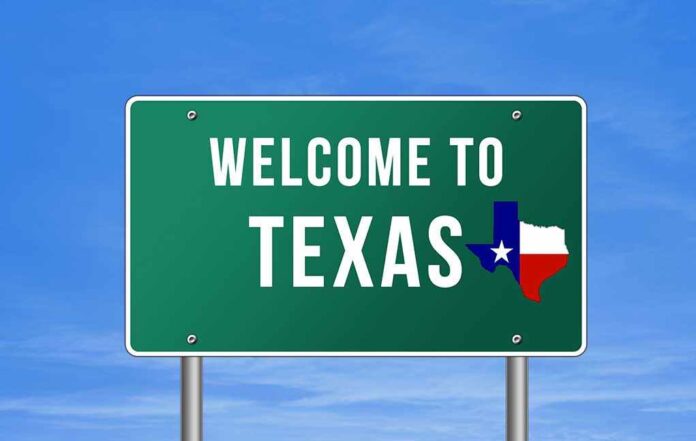A new California law threatens constitutional rights for out-of-state candidates, drawing intense backlash.
Story Snapshot
- California’s AB 965 restricts out-of-state candidates on ballots.
- Texas Congressman sues Governor Gavin Newsom over the law.
- The lawsuit alleges the law is retaliatory and unconstitutional.
- Debate centers on state vs. federal election authority.
Texas Congressman Challenges California’s Redistricting Law
California’s Governor Gavin Newsom signed AB 965 into law, a controversial bill that limits out-of-state congressional candidates from appearing on the state’s ballots unless they meet stringent residency requirements. This move is seen as a direct attack on constitutional protections, prompting a lawsuit from Texas Congressman Troy Nehls, who argues the law targets conservative candidates and undermines federal election standards.
California’s Democratic majority claims the law is necessary to ensure candidates have a meaningful connection to the state’s voters. However, critics argue it is a partisan maneuver aimed at reducing conservative influence in California elections. The clash between state legislative power and federal election law is intensifying, with national media and legal experts closely monitoring the legal proceedings set to begin in September 2024.
Legal and Political Implications
The lawsuit filed in the U.S. District Court for the Eastern District of California could set a significant precedent for state authority over federal ballot access. If successful, it may encourage other states to test similar restrictions, potentially prompting a Supreme Court review. The outcome of this case will likely influence the 2024 congressional races and could reshape the national political landscape by affirming or limiting states’ roles in federal elections.
Election law scholars widely view the law as unconstitutional, citing Article I, Section 2 of the U.S. Constitution, which sets qualifications for federal office. Previous attempts by states to impose additional requirements on candidates have faced legal challenges and were often struck down, as seen in California’s 2019 law mandating presidential candidates release tax returns.
Broader Impact on U.S. Elections
The implications of this lawsuit extend beyond California’s borders. It raises critical questions about the balance of power between state sovereignty and federal oversight in election administration. The legal costs and political fallout could heighten polarization over election laws, affecting campaign strategies and voter engagement across the country.
The Heritage Foundation and other conservative groups have criticized the law as a form of partisan overreach, warning of a slippery slope towards disenfranchisement. This case is a pivotal moment in the ongoing debate over election integrity and the rights of candidates to run without excessive state-imposed barriers.
Sources:
Los Angeles Times, “Texas congressman sues Newsom over new redistricting law”
Reuters, “California sued over new ballot access law”
Los Angeles Times, “California’s presidential tax return law struck down by federal judge”
Reuters, “California’s bid to require Trump tax returns for ballot blocked”











